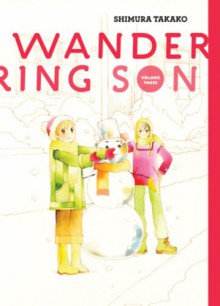
[I received a copy through NetGalley, in exchange for an honest review.]
A collection of essays by and about nonbinary authors. (Incidentally, July 14 is International Nonbinary People's day, so I guess this review comes at just about the right time.) There’s more than just “either man or woman”, and I wish this was more understood, all the more because I have a hard time with the current of hostility exhibited by some people whenever they can’t put others in neat little boxes (doesn’t only apply to gender, but the latter is a definitely a sore spot).
The essays range across a variety of people and assigned genders, and show well that “nonbinary” is not something that only “happens” in specific places, or to specific people. There’s too often a tendency to see all things enby or trans as a “phase”, as something that people should “grow out of”. Here, not all authors are younger people who may be called “too young to know” and who will “stop being confused and change their minds”, the way the usual narrative goes whenever the two little boxes I mentioned above cannot be ticked. Half the authors are at least in their 30s, or even born in the 1950s-60, which goes to show that it’s not a generation thing. The same way, “non-binary” is too often seen as “assigned female as birth who now presents as androgyne”, when the truth is that this concerns many other kinds of people, across all ages, origins, colour and sexuality.
It was really interesting for me to see how all these authors came to understand they were nonbinary. For some, it was obvious very early, others had more trouble putting a name on it, or thought they were looking for transition, and so on. We are formatted from a very young age to see ourselves as either boy or girl, and this formatting can have a strong impact, in that it’s not so easy to sort out what we feel, and the spectre of “having to be normal” weighs heavily. Because you don’t feel like a boy doesn’t mean you’re a cis girl, and conversely. And more visibility (and less dismissal) in general for nonbinary people would be a welcome thing.
In terms of diversity, the one thing I regret here is that it felt like a very US-centric collection, so it doesn’t shed light about what being non-binary may entail in other parts of the world. Maybe it wasn’t possible to get authors from other countries, or maybe it was overlooked? I was also not too thrilled with the chapter told by the parent of a nonbinary teen; I would’ve been more interested in having the direct point of view of Bailey themselves as well, also as someone with the perspective of a teenager.

 Log in with Facebook
Log in with Facebook 









